A protein called collagen aids in the formation of structural and flexible fibers in your muscles, tendons, bones, ligaments, and skin. Your skin’s collagen contributes to the plumpness and elasticity of your tissues. However, your body begins to create less collagen as you get older. Dry skin and wrinkles start to appear as a result of this collagen loss.
There are a ton of collagen skincare products available that promise to increase collagen and minimize fine wrinkles in order to replenish collagen loss and give the look of being younger. Collagen skincare is application topically as a cream or serum, in contrast to other dietary collagen supplements. Despite its apparent simplicity in restoring collagen and plumping skin, collagen treatment is not a panacea for aging.
Does skincare using collagen work then? The only things collagen skincare probably does for the skin are hydrate and improve texture. There isn’t enough proof to say that it genuinely increases skin collagen to offer noticeable anti-aging effects. The following are the benefits and drawbacks of collagen skincare for your skin.
Table of Contents
Collagen’s Beneficials for Skin

Research on collagen supplements is where most of the suggested advantages for skin health originate. According to research, using collagen supplements increases the amount of collagen in the dermis, or middle layer of skin, which in turn improves skin suppleness and smoothness. Furthermore, it seems that collagen promotes the production of elastin, the protein that gives your skin its tight, elastic texture. Supplementing with oral collagen may help enhance wound healing and skin hydration.
Topical collagen’s skincare benefits are less evident and little researched. Nevertheless, topical collagen may enhance skin elasticity and texture, much as oral collagen supplements. Moreover, topical collagen application seems to increase skin hydration and stop water loss.
Is Skincare With Collagen Effective?

According to research, using collagen skincare products seems to enhance moisture, suppleness, and fine wrinkles. However, it’s unclear that collagen treatment is addressing fine lines at their most fundamental cause. Your skin’s dermis and deeper fatty tissue lose their suppleness and collagen. It is unknown if topical collagen preparations can penetrate these layers and increase collagen synthesis.
Your skin barrier cannot absorb all of the beneficial properties of topical collagen because the molecules are too big for your skin to effectively absorb. Collagen skincare may therefore be less successful in raising your skin’s collagen levels. Nevertheless, it doesn’t seem that collagen skincare is totally ineffectual due to its restricted absorption. This is due to the fact that collagen skincare products frequently contain hydrolyzed collagen (also known as collagen peptides) or amino acids that aid in the production of collagen.
Collagen that has hydrolyzed breaks down into more absorbable, shorter amino acid chains called peptides. Extensive research indicates that this particular kind of collagen has the ability to penetrate the epidermis, the skin’s outermost layer, upon application. This restricted absorption aids in keeping the skin hydrated and hydrated.
Additionally, collagen-producing amino acids improve skin penetration when used in collagen skincare products. Despite being labeled as “vegan collagen,” these collagen products are devoid of collagen. Rather, amino acids that increase suppleness and collagen formation in the skin include glycine, proline, and hydroxyproline.
Collagen Skincare Types
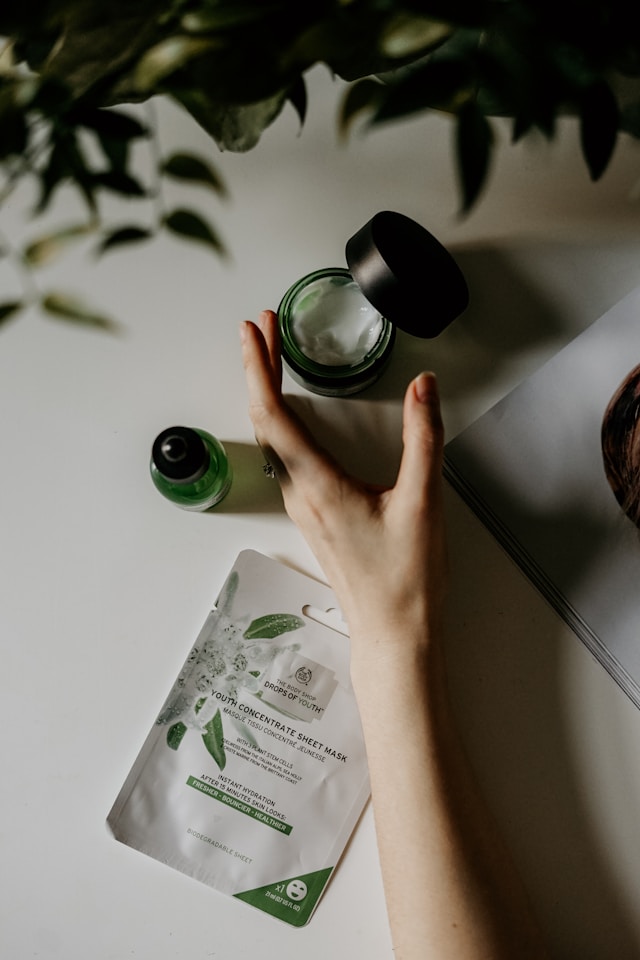
Skincare products containing collagen including serums, moisturizers, eye creams, and masks. For optimal absorption, search for collagen skincare products that contain hydrolyzed collagen, collagen peptides, or amino acids.
The active element in serums, in this case collagen, is present in high amounts. To better penetrate the skin, these cosmetics are frequently lightweight and water-based. Collagen is typically one of the primary active ingredients in serums marketed as collagen peptide serums or anti-aging serums.
In addition to hydrating your face, collagen moisturizers and eye creams may improve the suppleness and smoothness of your collagen. Collagen creams, daily moisturizers, and night creams are examples of moisturizers. Collagen is the active element in collagen masks, which come in the form of creams, gels, or sheets. Their purpose is to aid in the absorption of collagen into the skin by leaving them on the skin for a certain duration.
Is There Really Collagen in Your Skincare Products?
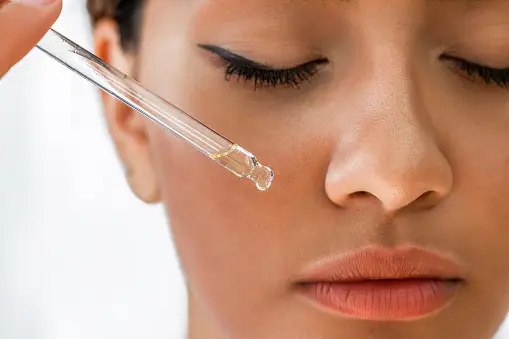
It can be challenging to identify the real collagen source in skincare products. The ingredients may refer to collagen as hydrolyzed collagen, marine collagen, or collagen peptides.
Collagen amino acids, cocoyl hydrolyzed collagen, and sr-hydrozoan polypeptide-1 are some names for “vegan collagen” that has been synthesized with amino acids. In actuality, these goods don’t contain collagen. They have amino acids in them that support collagen synthesis. Additionally, these items could make reference to “collagen complex” or “collagen boosting.”
Work of Collagen Masks?
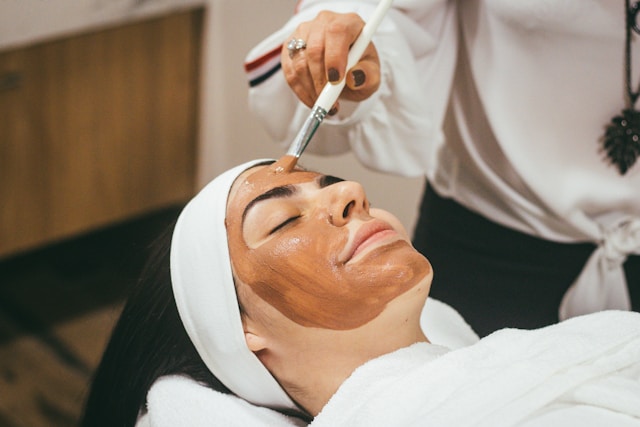
Collagen face masks haven’t been the subject of much research, much like other topical collagen products. Collagen face masks most certainly don’t stimulate collagen at a deep enough level to provide effective anti-aging benefits, based on what we do know about various topical collagen therapies. Collagen masks, however, might function by hydrating the skin and enhancing its texture.
For optimal absorption, look for collagen face masks formulated with hydrolyzed collagen, collagen peptides, or collagen amino acids if you’d like to give them a try.
Using Collagen Skincare Products

Are you prepared to include collagen in your beauty regimen? Here are some tips for using various collagen products:
- Collagen serums: Since your skin absorbs serums quickly, after cleansing or toning, gently massage a pea-sized amount of collagen serum into your skin. Apply a moisturizer on top, and if it’s daytime, sunscreen.
- Collagen moisturizers and night creams: After cleansing, toning, serums, or treatments, apply collagen moisturizers to your face and neck. Day and nighttime applications are possible for collagen creams and moisturizers intended for daily usage. Use night creams just before going to bed.
- Collagen eye creams: Apply a thin layer of eye cream to the region under your eyes with your ring finger. Apply it after cleaning, toning, and other treatments, but before your moisturizer due to its thick texture.
- Collagen masks: After cleansing, apply the cream, gel, or sheet mask to your face according to the directions on the package. After the suggested amount of time, remove the sheet from the mask or use warm water to wash off the cream or gel. Apply a moisturizing moisturizer as a follow-up.
Investigate Other Collagen-Boosting Skincare

Different active ingredients in skincare products can also aid in the stimulation of collagen production; in fact, they might even outperform collagen skincare products in terms of effectiveness!
- Retinol or retinoid serums and creams can aid in increasing the generation of collagen and cell turnover to reduce wrinkles and fine lines.
- Vitamin C serums and Niacinamide (Vitamin B3) skincare use strong antioxidants to aid in the skin’s increased creation of collagen. Additionally, they shield your skin from outside factors that could exacerbate the damage to the collagen you already have.
- Hyaluronic acid serums and moisturizers can improve skin’s collagen strength and water content to provide greater hydration.
Collagen’s Adverse Effects
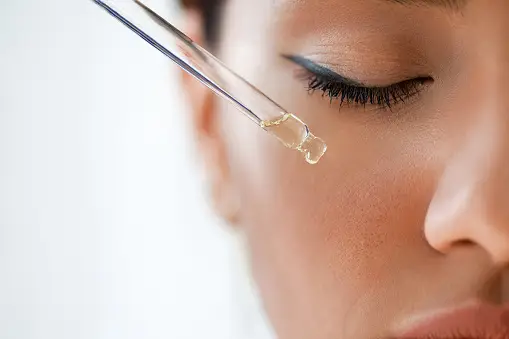
There are no known side effects from topical collagen use, according to research. It is possible to experience an allergic response and get a rash known as allergic contact dermatitis, just like with any new skincare product.
Always run a patch test to observe how your skin responds before using any new collagen skincare products. If you experience red, itchy, or puffy skin, it could be an allergy to a collagen skincare product. Stop using skincare products if you experience any reactions.
A person should also look for the collagen type in their skincare products if they avoid animal products or follow a plant-based diet. Marine sources, such as fish, algae, and sea sponges, are common sources of hydrolyzed collagen or peptides incorporated to skincare products. But it is possible to genetically modify or make “vegan collagen” using bacteria and yeasts. Be aware, however, that vegan collagen is devoid of collagen. Rather, it has amino acids that aid in the synthesis of collagen.
Methods to Increase Natural Collagen
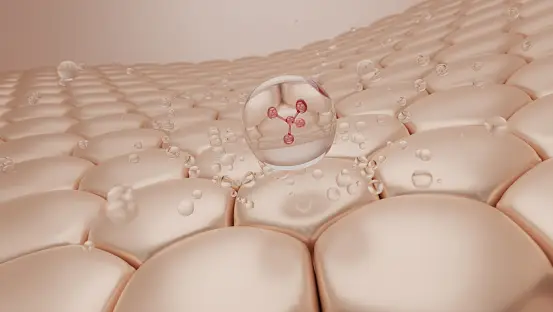
Here are some additional techniques to stimulate collagen production if you’d like to forego collagen skincare altogether or incorporate more collagen-boosting activities into your daily routine:
- Eat foods high in collagen: Animal items that include connective tissues, such as poultry, beef, fish, pork, and meals containing gelatin, are usually sources of collagen.
- Eat foods high in amino acids: Vegetables and dairy products such as quinoa, mushrooms, beans, cottage cheese, and legumes can aid in the synthesis of collagen.
- Eat vitamin C foods: Your body uses vitamin C to produce collagen. For more vitamin C, try eating raw broccoli, red and green peppers, and citrus fruits.
- Wear sunscreen daily: Additionally, sun exposure might lower your skin’s collagen levels. It can be beneficial to use sunscreen with an SPF of 30 or higher.
- Avoid smoking: In addition to their negative effects on health, tobacco products may reduce the amount of collagen in your skin.
- Red light therapy: According to research, red light exposure may help skin cells produce more collagen and elastin, which could delay the formation of wrinkles brought on by collagen loss.
- Microneedling treatments: Microneedling, also known as derma rolling, involves putting tiny needles on the skin to stimulate the creation of collagen and elastin, which helps tighten the skin and lessen small wrinkles.
An Overview
Many claims are made about the anti-aging and collagen-boosting properties of collagen skincare products. But collagen skincare doesn’t penetrate the skin’s deep layers, where wrinkles originate. Nevertheless, studies suggest that moisturizing the skin and enhancing its texture using hydrolyzed collagen, also known as collagen peptides, may lessen the visibility of fine lines. Collagen-producing amino acid supplements, rather than collagen itself, seem to permeate the skin more successfully to enhance its texture and hydration.
